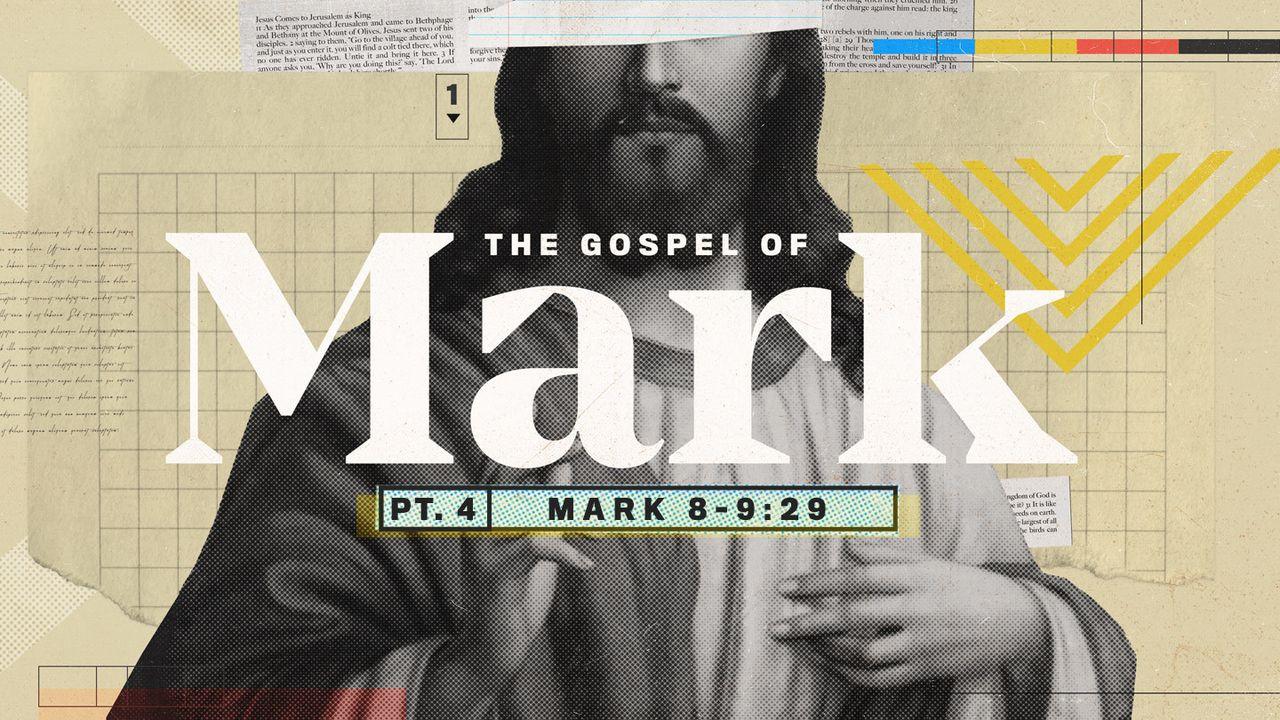The Gospel of Mark (Part Four)预览

A Miracle Again
By Denise Trio
“‘How many loaves do you have?’ Jesus asked. ‘Seven,’ they replied. He told the crowd to sit down on the ground. When he had taken the seven loaves and given thanks, he broke them and gave them to his disciples to distribute to the people, and they did so. They had a few small fish as well; he gave thanks for them also and told the disciples to distribute them. The people ate and were satisfied. Afterward the disciples picked up seven basketfuls of broken pieces that were left over. About four thousand were present. After he had sent them away, he got into the boat with his disciples and went to the region of Dalmanutha.”—Mark 8:5–10 (NIV)
Here you are again, in the middle of another problem you can’t figure out. How are you going to make enough to pay rent this month? How are your kids going to do on their exams? How are you going to make it through your loved one’s diagnosis?
Here we see the disciples in the middle of another problem they couldn’t figure out. A crowd of 4,000 of Jesus’ followers were hungry and in the middle of nowhere. Just a few chapters back, Jesus fed a crowd of 5,000 people with five loaves and two fish. I wonder if the disciples’ faith was stronger because they had already seen Jesus do a miracle like this before? . . . Nope.
The disciples ask, “But where in this remote place can anyone get enough bread to feed them?” (Mark 8:4). Yet, Jesus doesn’t rebuke their lack of faith. Instead, He performs a miracle again. He takes the seven loaves they have and tells the crowd to sit down. He first thanks God for the bread, then he breaks the loaves, and then He tells the disciples to distribute them.
This process of thanking, breaking, and distributing might sound familiar to you. We saw it in the feeding of the 5,000. We’ll see it again at the Last Supper (Mark 14:22) and during Jesus’ final days on the earth, though a little differently.
Jesus goes into the garden to pray before His betrayal and arrest. His prayer is a posture of surrender and alignment with the will of His Father. Then Jesus’ body is broken on the cross. Just as the broken bread for the 4,000 was a provision from God for the people’s hunger, so is Jesus’ life for our salvation. After His resurrection and ascension, the good news of Jesus was distributed all over the world by Jesus’ disciples, just like those broken pieces of bread.
At the end of Jesus’ miracle here, the crowd was satisfied, and there were seven baskets full of leftovers. Seven loaves and a few fish turned into more than enough food. In the Bible, seven is the number of perfection and completion, and I think there is no coincidence here. Jesus’ work with that crowd, and His work on the cross, was complete perfection. It was more than enough.
So, if you find yourself once again in a situation that feels impossible, remind yourself of what Jesus has done before. The miracle of feeding the 4,000 wasn’t exactly the same as the miracle of feeding the 5,000. However, the result was the same—Jesus did the work, the crowd was satisfied, and the miracle was complete. Your next miracle will probably not be exactly the same as your last, but if He came through before, He’ll come through again!
Pause: What problems feel insurmountable in your life today? How have you seen God provide for your needs and solve your problems in the past?
Practice: Take a moment to think about a time when God did a miracle in your life or in someone else’s. What attribute of God can you take away from that situation?
Pray: Heavenly Father, I know that You are the great provider for all of my needs. The worries and problems that I face are nothing in comparison to Your greatness. I thank You for sending Your Son to die for me. I trust in Your faithfulness and Your unchanging nature to continue to care for and provide for me. Help me to share that trust with others! In Jesus’ name. Amen.
读经计划介绍

In part four of a seven-part devotional journey through the Gospel of Mark, we’ll examine Mark 8-9:29, continuing our verse-by-verse breakdown of Jesus' life and ministry, as told by John Mark.
More





